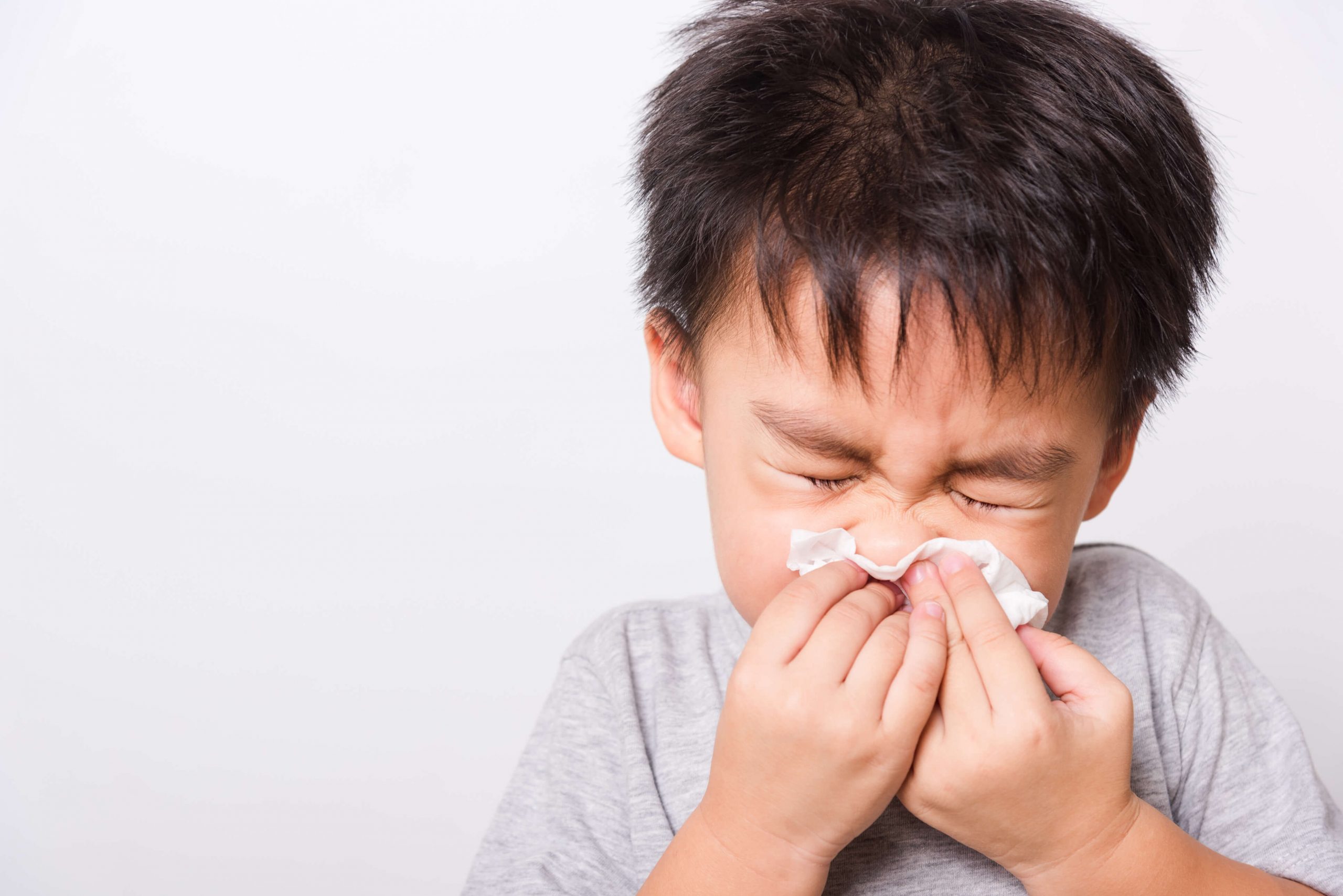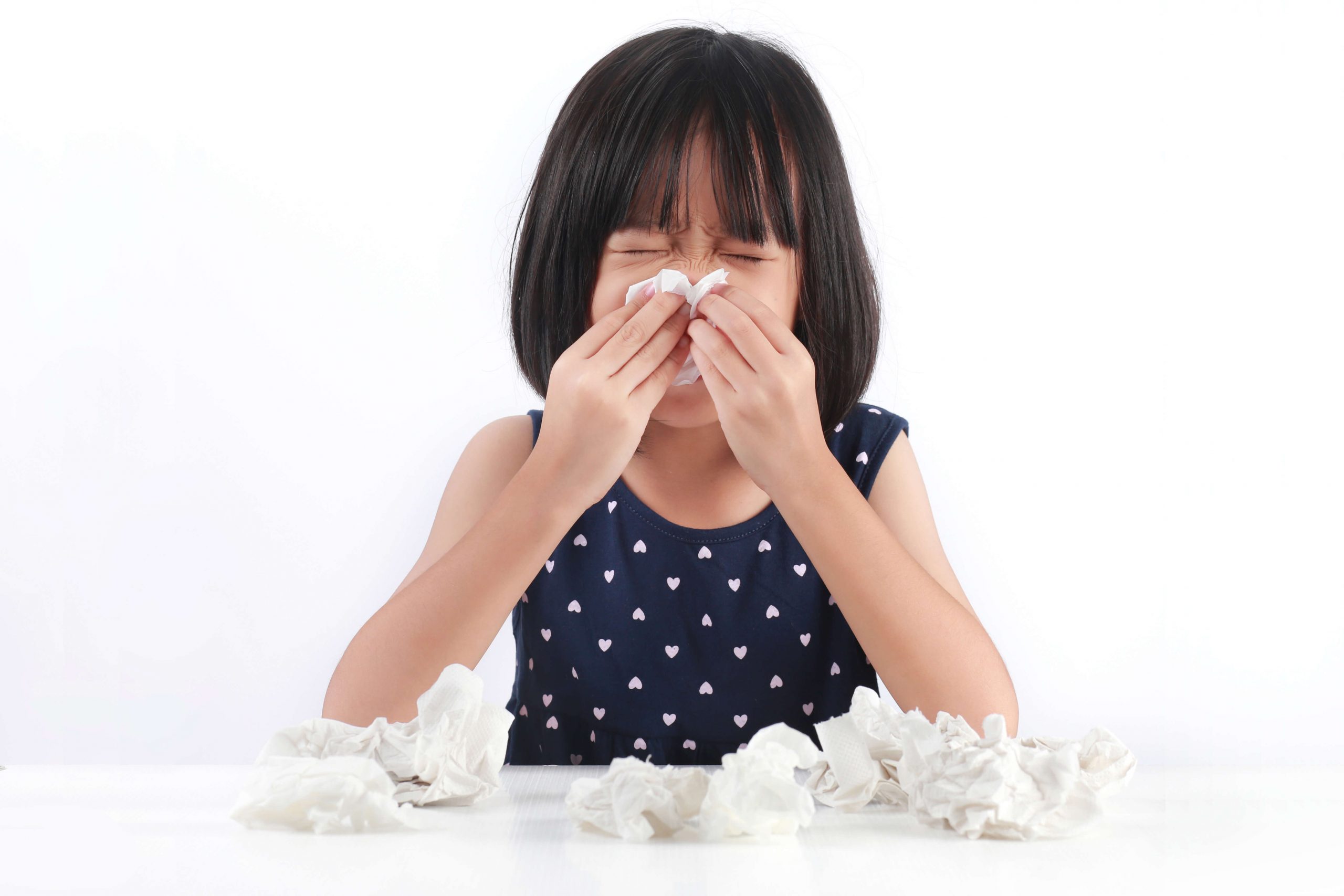Children & Parenting
Allergies In Children: What You Need To Know

Allergies are very common in children, and recent statistics show that worldwide, sensitisation rates are on the rise. For parents, it is important to understand and know what to recognise if your child has allergies.
In this article, we will explore everything you need to know about your child’s allergy and how you can make your little one feel better.
What Are Allergies And Why Do They Happen?
The human body protects itself by fighting off illnesses caused by germs etc. When the immune system overreacts to a usually harmless substance (called an allergen) that is eaten, breathed in, injected, or touched, an allergic reaction may occur and affect different parts of the body.
Some minor allergic reactions include symptoms such as sneezing and itchy eyes, whereas others are more serious and even life-threatening, like shortness of breath and vomiting.
Are Allergies Hereditary?
It is often hereditary as to whether we develop allergies, which means that it can be passed down through genes from parents to their children. This does not necessarily mean that your child will develop the same allergies as yours. In some cases, a child can develop allergies different from that of his/her parents.
If you suspect your child has an allergy, do consult your paediatrician. In some cases, further testing eg. Skin or blood tests for allergies may be done.
What Causes Allergic Reactions In Children?
Substances that provoke an overreaction of the immune system are called allergens. The main allergens or allergy triggers can be divided into 5 groups. Read more about some of the common allergens in these groups:
1. Outdoor Allergens
Pollen & Mould
Pollen is one of the most common allergens for people around the world. Trees, grasses and weeds spread this fine powder across the air to fertilise plants of the same species. Mould thrive in shaded and damp areas outdoors, especially in countries such as Singapore where the weather is hot and humid throughout the year. Like pollen, these microscopic mould spores float in the air. When these lightweight particles are breathed in, it can cause allergic reactions in people who are allergic to pollen and mould.
2. Indoor Allergens
Dust Mites
Dust mites are extremely tiny bugs that live in house dust, feeding on the dead skin cells that our body sheds regularly. They survive in all climates and thrive in warm and humid environments. People with dust mite allergies will experience symptoms such as sneezing, itchy nose, itchy eyes when exposed to it.
3. Pets & Insects
Pets
Specific proteins found in animals’ skin cells, saliva and urine are some of the most common indoor/outdoor allergens. Pet fur and feathers are not allergens themselves but they collect dead skin cells (dander), saliva, and urine. When protein particles dry on the pet hair they become airborne, clinging onto furniture, clothes and other surfaces. These allergens are strong and may remain active for several months.
Insects
Insect allergies, such as bee stings or mosquito bites, are known to induce an allergic reaction. It exhibits itself in an exaggerated reaction to the insects’ bites or stings, where people can experience a skin rash, redness, itching, and swelling in the area around the bite. In some cases, insect bites may cause severe life-threatening allergic reactions.
4. Food
For children with a food allergy, even exposure to the tiniest amounts of the food can cause an allergic reaction. They will experience symptoms such as swelling of the tongue, mouth or face, breathing difficulty or vomiting, which can occur anytime from a few minutes after exposure to a few hours later. 8 common food allergies include:
- Eggs
- Cow’s milk
- Wheat
- Soy
- Peanuts
- Tree nuts (almonds, cashews, walnuts, etc.)
- Fish
- Shellfish
Sometimes it may be difficult to tell the difference between food allergies and food intolerances. If you suspect that your child has a food allergy, speak to your child’s paediatrician.
5. Medications and Chemical Allergens
All medications (over-the-counter, prescribed or herbal) have the potential to cause side effects such as an allergic reaction. Among them, antibiotics are one of the most common.
For some children, the chemicals in shampoo can also trigger allergic skin reactions. These reactions called allergic contact dermatitis occurs when your skin overreacts to chemicals such as fragrances and preservatives, which are normally considered harmless.
Latest Articles
How Are Abdominal Hernias Treated?
What to Expect from Colorectal Surgery
How to Treat Breast Inflammatory Conditions
Gynaecomastia: Understanding Male Breast Cancer
What Are Common Symptoms?
Allergic reactions vary from person to person. Common symptoms of an allergic reaction include sneezing, coughing, redness, watery eyes, swelling. Other severe reactions include trouble breathing, strong itching, diarrhoea, vomiting, dizziness or even anaphylaxis, which is a life-threatening condition.
How Are Allergies Diagnosed?
Even though the majority of allergies are easy to identify, there are still some which are not as obvious and can be mistaken for other conditions.
If your child’s cold is not getting any better after a week or two, you should consult with your child’s paediatrician. They may either diagnose an allergy, start treatment or refer you to an allergist (a doctor who treats allergies and other immune issues) for further or more detailed testing.
Typically, an allergist will perform a skin test or blood test which aims to measure the level of IgE antibodies to particular allergens.
How Can Allergies Be Treated?
The goal is to avoid allergens and manage the symptoms properly. In some cases, your allergist may prescribe allergy shots which form a long-term treatment process to decrease severe allergic reactions.
As you may not always be physically around your child, you should educate him/her about their allergies, symptoms to look out for, and what to do in the event a reaction occurs. Similarly, inform your child’s caregivers about his/her allergies and give them clear instructions on how to help in the case of an emergency.
In instances when your child develops an allergic reaction derived from environmental allergens, your specialist may prescribe your child antihistamine medications, eye drops or nasal sprays to provide some relief. If your child has a serious allergy to food or a history of anaphylaxis, the doctor may prescribe your child an ‘auto- injector’ to carry around. This is an injection that is life-saving in case your child has a life-threatening allergic reaction.
In addition, always read food labels to check if the food prepared contains your child’s allergen. Oftentimes, food containing soy proteins and nuts may come as “hidden” ingredients within many foods, and not explicitly listed on the label.
Conclusion
You should treat allergies seriously and consult with a well-qualified paediatrician/specialist for an accurate diagnosis and treatment plan. While there may not be a cure for an allergy, correct management of the symptoms and a positive outlook will help maintain your child’s wellbeing.
Read this next ...
WHO WE ARE
About SOG Health Pte. Ltd.
Established in 2011, SOG Health Pte. Ltd. (“SOG”) is a leading healthcare service provider dedicated to delivering holistic health and wellness services to the modern family.
With a long and established track record in Singapore providing Obstetrics and Gynaecology (“O&G”) services such as pre-pregnancy counselling, delivery, pregnancy and post-delivery care, the Group has since further expanded its spectrum of healthcare services to include Paediatrics, Dermatology, and Cancer-related General Surgery (Colorectal, Breast & Thyroid).
The Group’s clinics, under its four operating segments of O&G, Paediatrics, Oncology and Dermatology, are strategically located throughout Singapore to provide easy access to its patients.
- Obstetrics
- Gynaecology
- GynaeOncology
- Breast, Thyroid & General Surgery
- Colorectal, Endoscopy & General Surgery
- Dermatology
- Paediatrics
Consult With A Specialist From SOG
Visit one of our specialists today to learn more about your health!
Recommended Specialists
Book An Appointment
Fill up this form and our clinic will get back to you shortly.
For general enquiries, please click here.




